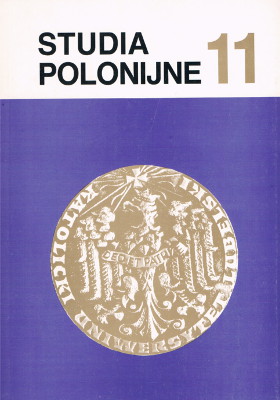The Ethno-Cultural Identity of Polonia in the Teaching of John Paul II
Main Article Content
Abstract
John Paul II's speeches made to emigrants from Poland and their subsequent generations (so-called Polonia) are the subject of this article. They were delivered in 1979-1985 in seventeen countries and in Rome. The analysis of over twenty speeches proves that the basic problem undertaken by the Pope is the ethnic identity of Polish emigration and Polonia. However, John Paul II does not use this terminology. Instead, he uses: "one's own identity", "internal identity" and the like. The article deals with the following matters: ethnic identity of Polonia as a moral problem, ideological programme for Polonia expressed in those speeches and their practical issues.
The Pope regards the deep tie between Polish culture and Christianity as being the essential element of Polish national identity (and also of emigration and Polonia). In his speeches he points to the that this tie played an important role in the history of the country and emigration and it is the "basic key" to the understanding of its history. As the most important part of all those speeches, one may regard the reasons given by the author, which justify the motivations of preserving one's own spiritual identity by the emigration and Polonia. They have a moral and personalistic character. Preservation of the native culture, endowed with Christian religious values is, according to the Pope, not only the condition of spiritual becoming oneself, but also preserving the richness of one's manhood in the situation of extirpation and secularization.
There is also a clear programme of fostering the identity of Polonia. It has an open and dynamic character. It is not concerned exclusively with the preservation of one's own heritage, but rather its deepening, developing and enriching with new values which are passed over to new generations. This process is possible by way of integration, that is to say, an active and creative participation in the life of the new society. It has to be done preserving a tie with the cultural values of the country of origin.
The Pope regards identity understood in this way as a necessity and emigration as the cultural-creative process. So the identity of Polonia is a dynamic reality and a continous synthesis of the native cultural values and those of the country of settlement. John Paul II as the pastor not only points to the motives of one's own preservation of the cultural heritage of the emigrants but also suggests (mainly indirectly) certain forms of action aimed at the preservation and formation of one's own ethnic identity. Family upbringing has, according to the Pope, an extremely important role.

